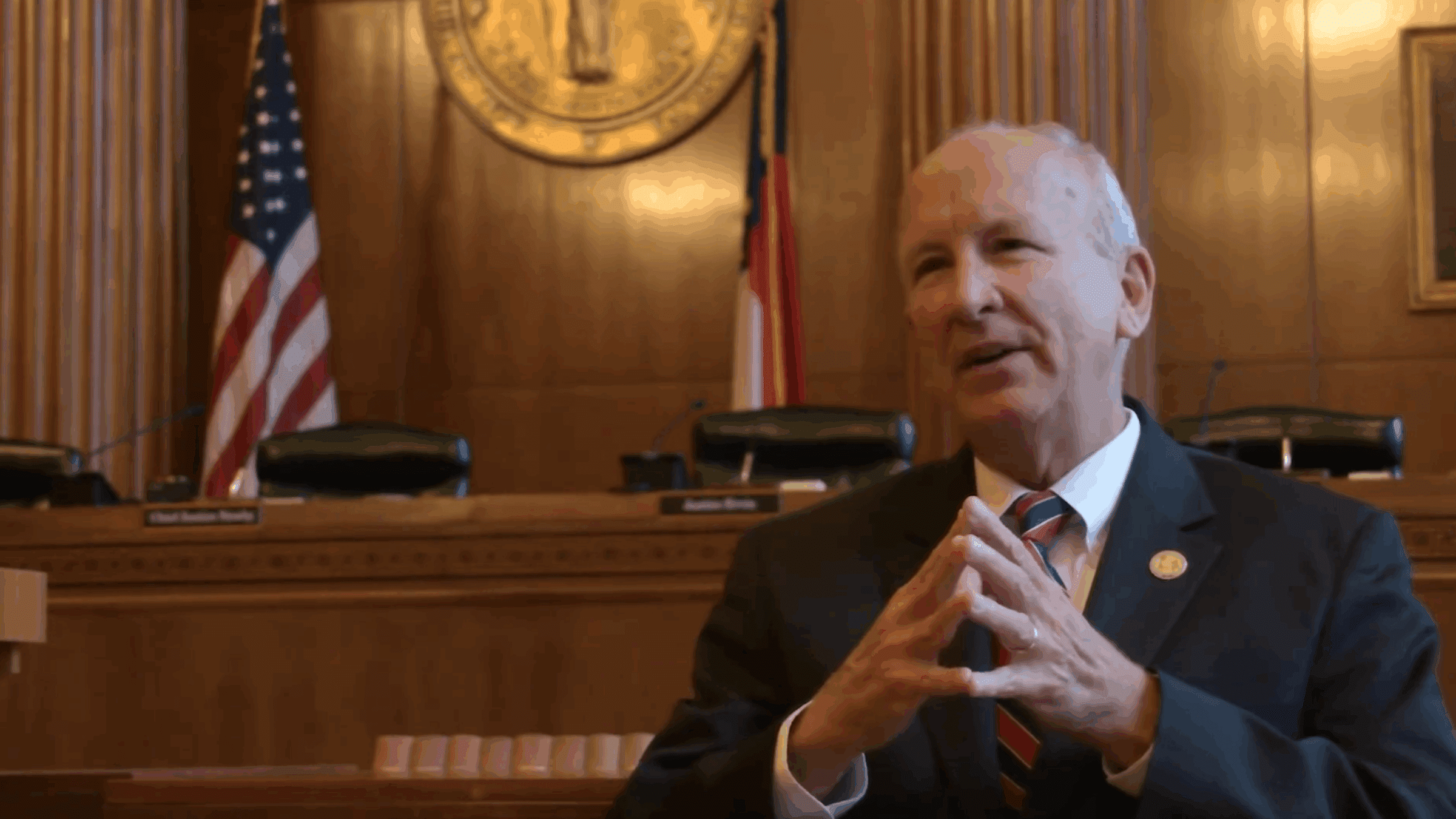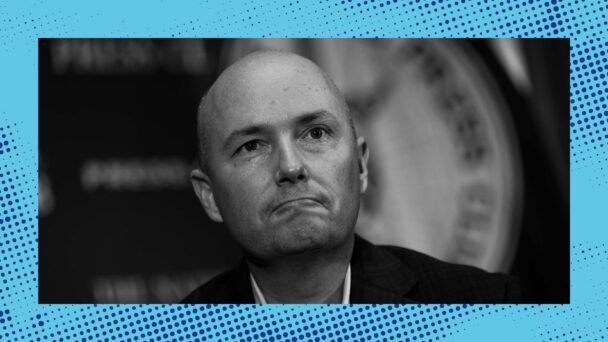On Thursday, ProPublica published an explosive investigative report into the rise of Paul Newby, the chief justice of the North Carolina Supreme Court and a right-wing crusader who believes God called him to lead the court and deliver “biblical justice.”
The report, written by the journalist Doug Bock Clark, exposes the lengths Newby has gone to over the past 20 years in order to transform the state’s judiciary into an instrument of the GOP, including overturning precedent to facilitate Republican priorities, demoting judges who don’t share his agenda, and weaponizing the judicial ethics commission to harass Black colleagues. When Newby was running for office in 2004, judicial elections were nonpartisan, and state law provided for a public funding option for campaigns, which most judicial candidates chose to use. But Newby sought and received the endorsement of the state Republican party anyway. And after Republicans won control of the state legislature in 2010, Newby began working with them behind the scenes to enact more changes to judicial elections. Sure enough, in 2013, lawmakers got rid of the public financing option—a move, Clark says, that Newby supported.
You should read the article, if for no other reason than the state’s Republican officials really, really don’t want you to. Not only did they decline to answer Clark’s questions for the record, they threatened him for daring to ask.
In his report, Clark writes that he repeatedly reached out to Newby and the court system’s communications team, as is standard practice, but received no comment. When Clark went to a judicial conference to try to ask Newby questions in person, Newby had him escorted from the event. Clark also sent questions to Sarah Newby, who is both the finance director for the state Republican Party and also Paul Newby’s daughter. At this point, Clark received an email from the state GOP’s communications director, Matt Mercer, accusing ProPublica of waging a “jihad” against “NC Republicans,” and insinuating that President Donald Trump would take action against ProPublica if it didn’t end its investigation.
“I’m sure you’re aware of our connections with the Trump Administration and I’m sure they would be interested in this matter,” wrote Mercer. “I would strongly suggest dropping this story.”

Newby in 2021 (YouTube)
Of course, Newby has no obligation to take every reporter’s call. But declining a press request is one thing; trying to silence the press entirely is another. The implication of Mercer’s email is about as subtle as the bolding and underlining: He does not want people looking into how Republicans have seized control of the courts and are wielding the legal system to their own ends, and he thought the specter of a president who recently celebrated “taking the freedom of speech away” could be sufficient to suppress the story.
He was, of course, mistaken. After Clark shared the article on social media, Mercer quote-posted it and added “Feed ProPublica to the USAID woodchipper,” referring to Elon Musk’s February directive to dismantle the agency.
Newby’s approach here is representative of the Republican judicial machine’s deep hostility to media outlets that they view as insufficiently aligned with their own beliefs. Justice Amy Coney Barrett, for instance, launched her book tour with Bari Weiss of The Free Press. Last year, Justice Neil Gorsuch promoted his book with the likes of Megyn Kelly and Ben Shapiro. And Justice Samuel Alito seems to run to The Wall Street Journal every time he needs a pick-me-up. Conservative judges are happy to take softball questions from their friends. But if outlets like ProPublica threaten them with accountability, they may respond with actual threats.
Ironically, Newby’s and Mercer’s efforts to stifle Clark’s work reveal the exact kind of coordinated crookedness that they wanted to keep quiet. Republican judges and lawmakers see themselves as on the same team, and are working together to protect their shared interests, unburdened by public scrutiny.





